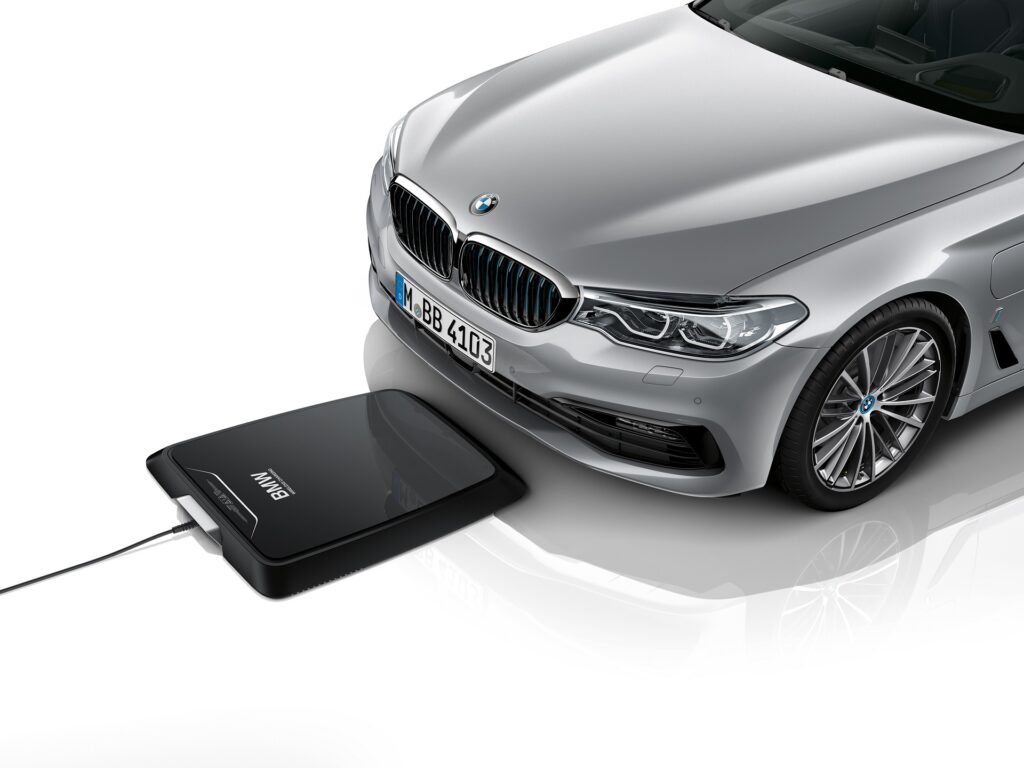In a groundbreaking move towards sustainable mobility, BMW has unveiled its latest innovation: wireless EV charging for its 2024 models. This cutting-edge technology not only enhances the convenience of charging electric vehicles but also aligns with the growing demand for eco-friendly solutions in the automotive industry. With the introduction of wireless charging, BMW aims to simplify the charging process, making it more accessible and user-friendly for electric vehicle owners.
As we delve deeper into this exciting development, readers will discover how BMW’s wireless charging system works and the benefits it offers to both drivers and the environment. From eliminating the hassle of plugging in to ensuring optimal charging efficiency, this technology is set to transform the way we think about electric vehicle ownership. Additionally, we will explore the compatibility of this system with various BMW models and the potential impact on the future of electric mobility.
Stay with us as we unpack the details of BMW’s wireless EV charging solution, including insights from industry experts and user testimonials. Whether you’re a current BMW owner or considering making the switch to electric, this article will provide you with valuable information on how this innovative charging method can enhance your driving experience. Read on to learn more about the future of electric vehicle charging and what it means for you!
BMW has taken a significant step forward in the electric vehicle (EV) market by introducing wireless EV charging technology for its 2024 models. This innovative approach not only enhances convenience for drivers but also aligns with the growing demand for sustainable transportation solutions. In this article, we will explore various aspects of this groundbreaking technology.
The Technology Behind Wireless EV Charging
Wireless EV charging, also known as inductive charging, utilizes electromagnetic fields to transfer energy between two coils—one located on the ground and the other in the vehicle. This technology eliminates the need for physical connectors, allowing for a seamless charging experience. BMW’s system is designed to be user-friendly, enabling drivers to simply park their vehicles over the charging pad to initiate the charging process.
This method of charging not only simplifies the process but also reduces wear and tear on charging ports, which can be a common issue with traditional plug-in systems. As the automotive industry continues to evolve, the integration of such advanced technologies is crucial for enhancing user experience and promoting the adoption of electric vehicles.
Benefits of Wireless Charging for Electric Vehicles
The introduction of wireless charging offers numerous benefits for electric vehicle owners. One of the most significant advantages is the convenience it provides. Drivers no longer need to fumble with cables or worry about finding a charging station; they can simply park their vehicle and let the system do the rest. This ease of use is particularly appealing for urban drivers who may have limited access to charging infrastructure.
Additionally, wireless charging can contribute to increased safety. With no physical connections, the risk of electrical hazards or damage to charging ports is minimized. This technology also supports the concept of smart cities, where vehicles can be charged while parked in public spaces, further promoting the use of electric vehicles in urban environments.
Compatibility with Existing EV Models
One of the key considerations for the success of wireless EV charging is compatibility with existing electric vehicle models. BMW has announced that its wireless charging system will be available for select 2024 models, but the company is also exploring ways to make this technology accessible to other manufacturers. This could potentially lead to a standardized wireless charging system across various brands, enhancing the overall EV ecosystem.
As the market for electric vehicles continues to grow, the ability to charge vehicles wirelessly could become a significant selling point. Consumers are increasingly looking for convenience and efficiency, and compatibility with a wide range of models will be essential for widespread adoption of this technology.
Environmental Impact of Wireless Charging
Wireless EV charging technology aligns with the broader goals of reducing carbon emissions and promoting sustainable transportation. By making electric vehicles more convenient to charge, BMW is encouraging more drivers to consider switching from traditional gasoline-powered cars to electric alternatives. This shift is crucial for achieving global climate goals and reducing reliance on fossil fuels.
Moreover, the efficiency of wireless charging systems is continually improving, which means that energy loss during the charging process is becoming less of a concern. As technology advances, the environmental benefits of wireless charging will likely become even more pronounced, making it an attractive option for eco-conscious consumers.
Future of Wireless Charging in the Automotive Industry
The future of wireless charging in the automotive industry looks promising. As more manufacturers invest in electric vehicle technology, the demand for innovative charging solutions will continue to rise. BMW’s introduction of wireless charging is just the beginning; other companies are likely to follow suit, leading to a more competitive market.
Furthermore, advancements in battery technology and charging infrastructure will play a crucial role in the widespread adoption of wireless charging. As these technologies evolve, we can expect to see more efficient and faster charging solutions that will enhance the overall electric vehicle experience.
Consumer Reception and Market Trends
Consumer reception of wireless EV charging technology will be a critical factor in its success. Early feedback from BMW owners has been largely positive, with many appreciating the convenience and ease of use that wireless charging offers. As awareness of this technology grows, it is likely to influence purchasing decisions for potential electric vehicle buyers.
Market trends indicate a shift towards more sustainable and user-friendly transportation solutions. As electric vehicles become more mainstream, innovations like wireless charging will play a vital role in shaping the future of mobility. The automotive industry must continue to adapt to consumer preferences and technological advancements to remain competitive in this rapidly evolving landscape.
| Feature | Description |
|---|---|
| Introduction | BMW has announced the introduction of wireless electric vehicle (EV) charging technology for its 2024 models, enhancing convenience for EV owners. |
| Technology | The wireless charging system utilizes inductive charging technology, allowing vehicles to charge without the need for physical connections. |
| Charging Pad | A charging pad is installed on the ground, which aligns with the vehicle’s receiver to initiate the charging process automatically. |
| Charging Speed | The system is designed to deliver a charging power of up to 11 kW, providing a full charge overnight for most EVs. |
| Compatibility | Initially, the wireless charging feature will be available for select BMW models, with plans for broader compatibility in the future. |
| Benefits | This technology aims to simplify the charging experience, reduce wear on charging ports, and enhance the overall usability of EVs. |
| Market Impact | BMW’s move is expected to influence the EV market by setting a new standard for convenience and innovation in electric vehicle charging. |



